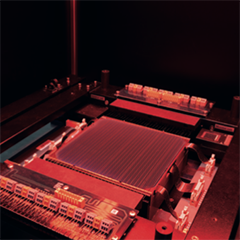Meyer Burger has been providing the most accurate cell and module measurement equipment worldwide for over 30 years. Solar cells and modules are sold based on performance categories. Therefore, precise performance measurement is critically important. Cell and module inspection systems detect possible quality insufficiencies and measure the performance.
The PV market is driven by the need to reduce the cost of PV electricity. In order to achieve that goal, efforts are made to increase cell/module efficiency, and to reduce production costs. Therefore, the equipment provider needs to propose to module manufacturers reliable and cost-effective solutions, taking into account production cycle-time, low total cost of ownership (TCO), as well as accuracy and reliability. These last points apply in particular to the measurement equipment suppliers whose task is to provide solutions for accurately determining the electrical performance of PV modules in operation.
The assessment of PV devices is a key issue at production level. The commercial value of a PV module is directly linked to its maximum power value (Pmpp) according to standard test conditions (STC, light irradiance of 1kW/m2, spectrum according to AM1.5 and module temperature of 25°C). The accuracy of this measurement has a direct impact on the price at which a module can be sold, and thus on the profit of the manufacturer.
To determine the Pmpp measured at STC, a solar simulator is used at the end of each production line to test the PV cells and single modules. The measurement accuracy of such equipment is a key parameter.
Great efforts are made today in R&D and production processes to gain an additional tenth of a percent in the efficiency of complete PV modules, which should not vanish due to poor-quality power measurement. Indeed, to yield a profit from these technological feats, intensified accurate evaluation of the results is necessary. Therefore, the PV industry definitely needs and deserves to benefit from highly accurate solar measurement equipment.



























